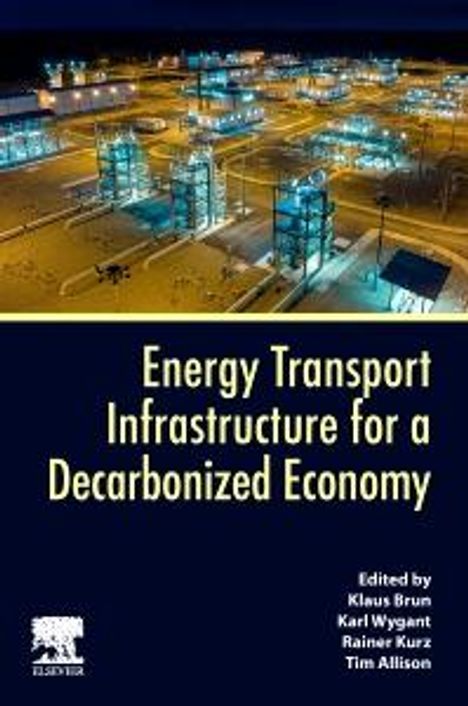Energy Transport Infrastructure for a Decarbonized Economy, Kartoniert / Broschiert
Energy Transport Infrastructure for a Decarbonized Economy
(soweit verfügbar beim Lieferanten)
- Herausgeber:
- Klaus Brun, Tim Allison, Rainer Kurz, Karl Wygant
- Verlag:
- Elsevier Science, 08/2024
- Einband:
- Kartoniert / Broschiert
- Sprache:
- Englisch
- ISBN-13:
- 9780443218934
- Artikelnummer:
- 11782647
- Umfang:
- 472 Seiten
- Gewicht:
- 1310 g
- Erscheinungstermin:
- 23.8.2024
- Hinweis
-
Achtung: Artikel ist nicht in deutscher Sprache!
Klappentext
Energy Transport Infrastructure for a Decarbonized Economy evaluates the transportation of fluids required in the decarbonized energy economy. The book will help researchers, design manufacturers, and those within government and academia to understand challenges and guide the design and development of systems, machinery, and infrastructure needed for a decarbonized energy economy. The book provides comprehensive insights on the implications of the energy transition for a critical aspect of commerce: the infrastructure central to energy transportation and the economy.
This practical book highlights the unique systems central to the efficient transport of various forms of energy. After outlining the need for transporting energy, types of fluids used to transport energy, and various means of transportation, the book covers the importance of understanding the energy marketplace, global perspectives, and then moves into the transport of natural gas, hydrogen, and carbon dioxide. The work concludes with coverage of technology gaps, research and development, future trends, and solutions. Led by professionals with decades of experience and collecting insights from expert contributors, this book begins with the essentials of energy transport, provides detailed coverage of modes of transport, considers critical questions of energy supply and economics, and looks at long-term environmentally sensitive, sustainable options for the transport thereof.
A powerful tool for the energy transition, Energy Transport Infrastructure for a Decarbonized Economy offers expert analysis on sustainable energy transport and its impact on our future.

